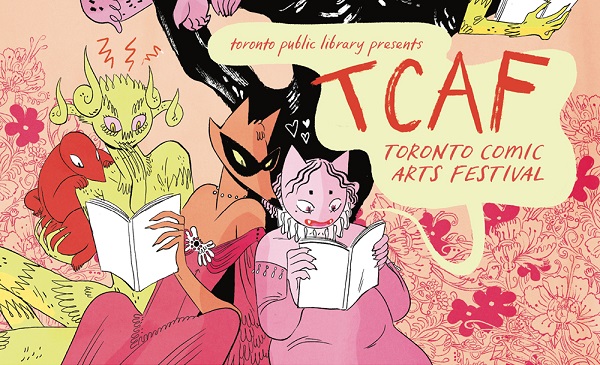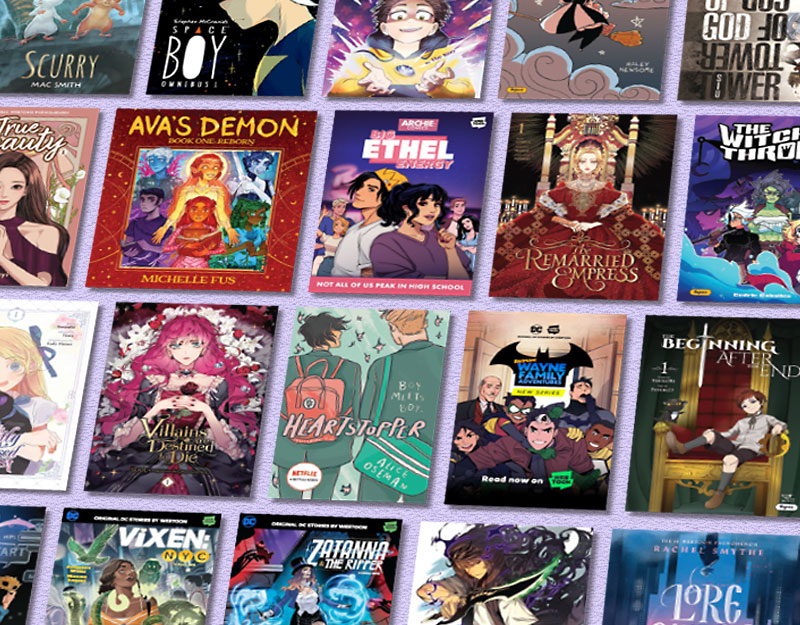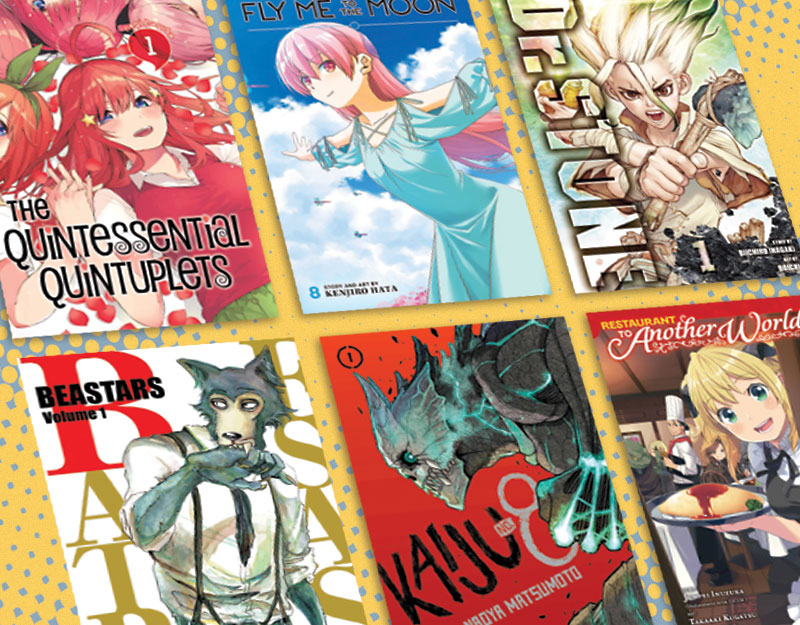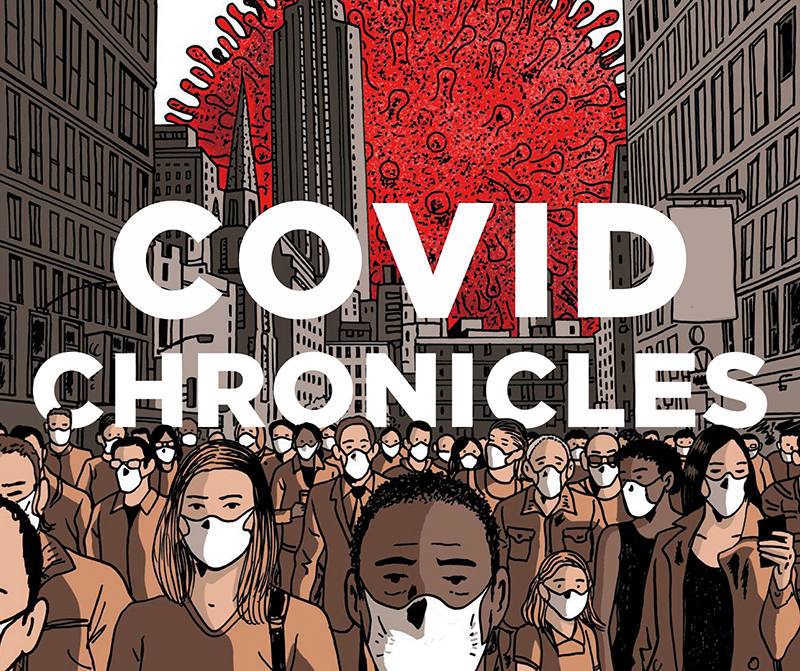
Comic Book Clubs for Libraries

At the recent Toronto Comic Arts Festival (TCAF), I had the pleasure of attending a panel on “How to Launch a Comic Book Club”. I am part of a comic club in Madison, Wisconsin, so I was curious to see how this was similar and different.
Led by Philippe Leblanc, the panel was more of a discussion group, which I appreciated. It was informative hearing the questions others had as well as Leblanc’s suggestions. Unfortunately, co-moderator Helen Anderson, who hosts the Ottawa Comic Book Club with Leblanc, was unable to attend.
ADVERTISEMENT
ADVERTISEMENT
The Ottawa Comic Book Club is officially sponsored by their library, but before that connection was made, they searched for an appropriate place in which to meet. That was Leblanc’s first point: Location is key. He told a memorable story about the various places they’d tried earlier, including a bar. That seemed like a good choice, since food and drink added to the discussion atmosphere, until they wound up having a meeting during a hockey playoff the club was unaware of while everyone else in the bar was participating loudly.
(The club I attend also meets at the local library, but we aren’t officially sponsored. We’re just allowed to reserve meeting rooms as part of the library audience. This may be a difference between Canada and the U.S.)
A library is an excellent choice, since they’re usually centrally located, the space can be available for free, and they provide options for people to participate without having to buy comics. That leads into the second key point, selection of material.
The Ottawa club works like a traditional book club, where everyone reads and discusses the same book each month. That means works need to be selected that are in print and relatively easy to find. Leblanc also suggested not picking works that everyone’s already got an opinion on, since that tends to depress discussion. Ages also need to be taken into account. If your club is open to both teens and adults, the younger age range may restrict some choices.
A local comic shop may be interested in supporting the club. Some have space that could be used for the meeting, but if not, they may also be interested in providing discounts on the books selected for discussion in return for promotion.
I would add that it’s a better choice to select stand-alone reads, graphic novels instead of serialized comics, both because they’re more readily available and because they can be more easily discussed as a single unit, without requiring additional knowledge or reading.
As the Ottawa club became more established, they began inviting authors, artists, and other contributors to participate in meetings, either in person or via screen. Some of the choices Leblanc mentioned having read in the club weren’t particularly popular or well-known (particularly outside of Canada), but they were selected because of the creator being available or interested in meeting with the club.
Another option is what my club does. We don’t prescribe a particular title; instead, we talk about what we’ve read over the past month that we enjoyed or would recommend or just want to talk about. (Sometimes it’s cathartic explaining why something didn’t work for you.)
ADVERTISEMENT
ADVERTISEMENT
We also share and lend out our reads, if we can, so a particular book may end up being read by a number of members, leading to continuing discussion over a period of months. I’ve often been enlightened hearing what someone appreciated about a book I didn’t care for, or vice versa, as different readers appreciate different elements.
Because of our format, we don’t have a traditional moderator, but a more organized club will want someone to fill that role. It can be the club organizer, or the responsibility could rotate among interested members. It doesn’t require much effort, but someone should prepare a few questions to start discussion, make sure everyone feels comfortable participating (encouraging the quiet and controlling the rowdy), and handle reminders of when the next meeting is. Sending out notes for those who couldn’t attend is also a nice feature.
As members of my club have come and gone (we’re in a university town, so a certain proportion of members are students), we’ve tweaked our format to serve the interests of who’s participating, while welcoming new ideas. Options we’ve tried include
- craft sessions — one member is a professional inker, and she presented on how that’s done with some practice art for us all to try
- historical information — I put together way too many slides explaining the Legion of Super-Heroes when some members, watching Supergirl, didn’t know much about the team
- practice presentations — a member was getting her paper ready for an academic conference, and we were a test audience
It’s a great feeling to meet regularly with other comic fans and learn from their interests and observations. If you’re curious to see how it goes, put the word out and give it a try!
Filed under: News
About Johanna
Johanna Draper Carlson has been reviewing comics for over 20 years. She manages ComicsWorthReading.com, the longest-running independent review site online that covers all genres of comic books, graphic novels, and manga. She has an MA in popular culture, studying online fandom, and was previously, among many other things, webmaster for DC Comics. She lives in Madison, Wisconsin.
ADVERTISEMENT
ADVERTISEMENT
SLJ Blog Network
Happy Poem in Your Pocket Day!
This Q&A is Going Exactly As Planned: A Talk with Tao Nyeu About Her Latest Book
Parsing Religion in Public Schools
ADVERTISEMENT







